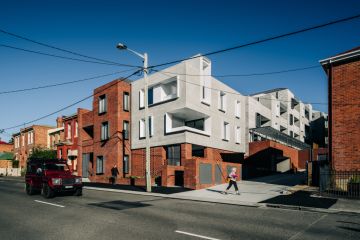Rental vacancy rates still tight - almost everywhere

Rental vacancy rates remain tight in most capitals with continued strong competition among tenants for available homes likely to keep upward pressure on rents.
Latest vacancy rates for July revealed that results in Melbourne and Sydney for both houses and units were steady over the month at 1.4 per cent and 2.1 per cent for houses and 1.7 per cent and 2.2 per cent for units respectively.
Sydney unit vacancy rates have remained relatively steady over the past year however Melbourne rates have tightened sharply, down from the 2.5 percent recorded over July 2016.
The Brisbane rental market remains more tenant-friendly by comparison with July vacancy rates for houses steady at 2.7 per cent and for units down slightly over the month to 3.1 per cent.

Rental vacancy rates in Adelaide remained below 2 per cent over July at 1.5 per cent for houses and 1.9 per cent for units. Available rental accommodation in Hobart and Canberra remains scarce with the lowest house vacancy rates of all the capitals at just 0.5 per cent and 0.8 per cent respectively.
Although vacancy rates in Perth and Darwin generally remain higher than the other capitals particularly for units, the recent tightening trend is continuing.
Perth house vacancy rates fell to 3.5 per cent over July to be significantly below the 4.3 per cent recorded over July last year. The Perth unit vacancy rate also fell over the month to 4.1 per cent and again lower than the 5.0 per cent recorded over July last year.
Similarly Darwin unit vacancy rates have tightened over the past year falling from 4.1 per cent to 3.4 per cent with the July house vacancy rate slightly higher at 2.2 per cent compared to last year’s 2.0 per cent recorded over the same month.
Increased dwelling construction has failed to ease shortages of supply in most capital city rental markets with increased migration and low levels of first home buyers keeping demand ahead of supply.
The steep rises in rents recorded over the past year are likely to continue in undersupplied rental markets and exacerbated by the recent sharp decline in dwelling building approvals and policies designed to reduce residential investor activity.
Dr Andrew Wilson is Domain Group Chief Economist Twitter@DocAndrewWilson join on LinkedIn and Facebook at MyHousingMarket.
We recommend
We thought you might like
States
Capital Cities
Capital Cities - Rentals
Popular Areas
Allhomes
More







